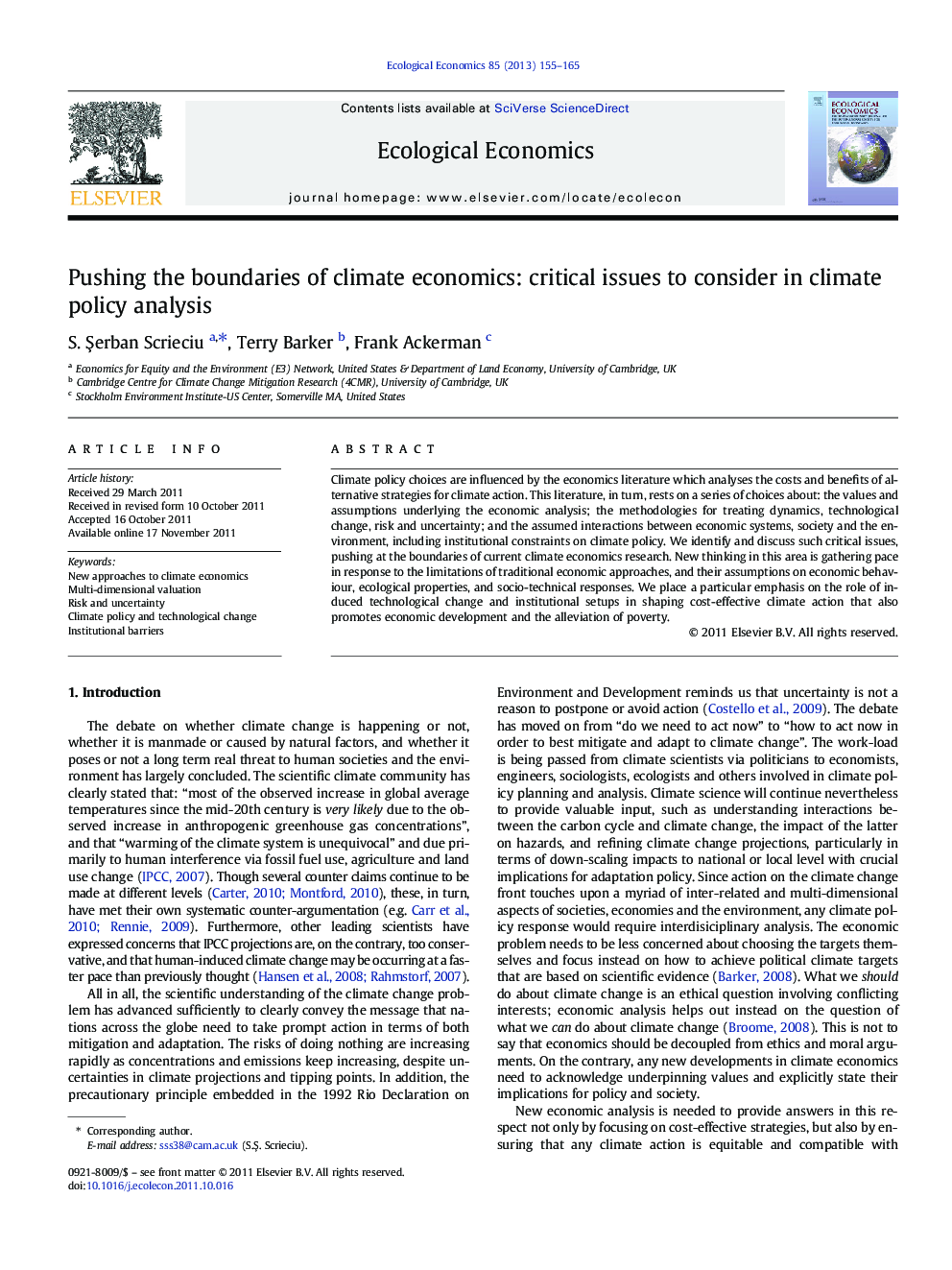| Article ID | Journal | Published Year | Pages | File Type |
|---|---|---|---|---|
| 5050220 | Ecological Economics | 2013 | 11 Pages |
Climate policy choices are influenced by the economics literature which analyses the costs and benefits of alternative strategies for climate action. This literature, in turn, rests on a series of choices about: the values and assumptions underlying the economic analysis; the methodologies for treating dynamics, technological change, risk and uncertainty; and the assumed interactions between economic systems, society and the environment, including institutional constraints on climate policy. We identify and discuss such critical issues, pushing at the boundaries of current climate economics research. New thinking in this area is gathering pace in response to the limitations of traditional economic approaches, and their assumptions on economic behaviour, ecological properties, and socio-technical responses. We place a particular emphasis on the role of induced technological change and institutional setups in shaping cost-effective climate action that also promotes economic development and the alleviation of poverty.
⺠Traditional approaches to the economics of climate change are being increasingly challenged by socioeconomic realities. ⺠Value judgements underpinning climate economic analysis need to be explicitly acknowledged. ⺠Economy-environment-society interactions need to be considered in their multi-dimensional flavour. ⺠Potentially catastrophic risks and irreducible uncertainty warrant a a precautionary approach to climate policy. ⺠Meaningful portrayals of technological and institutional dynamics are crucial to effective climate policy responses.
